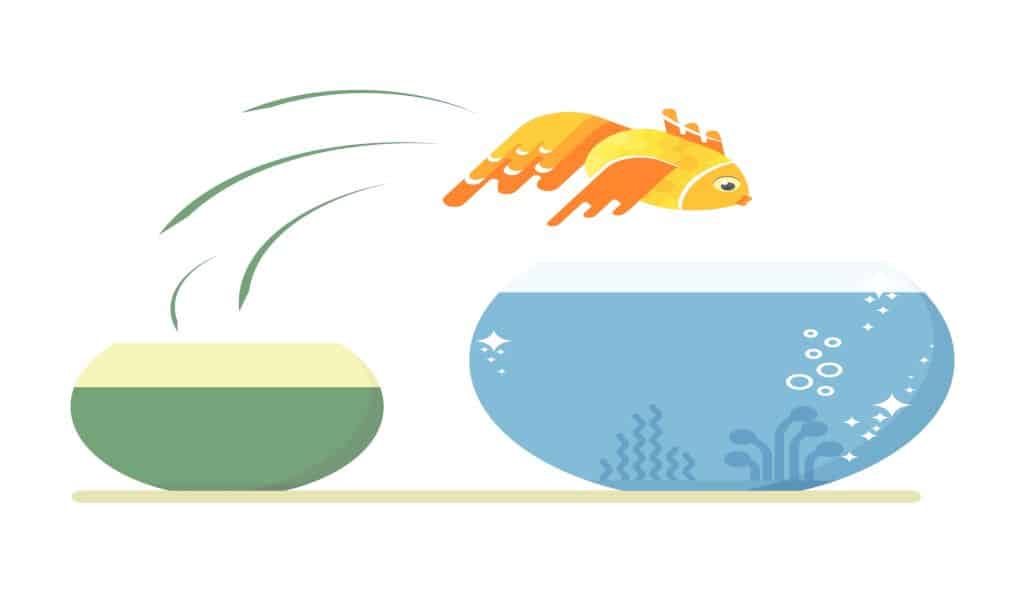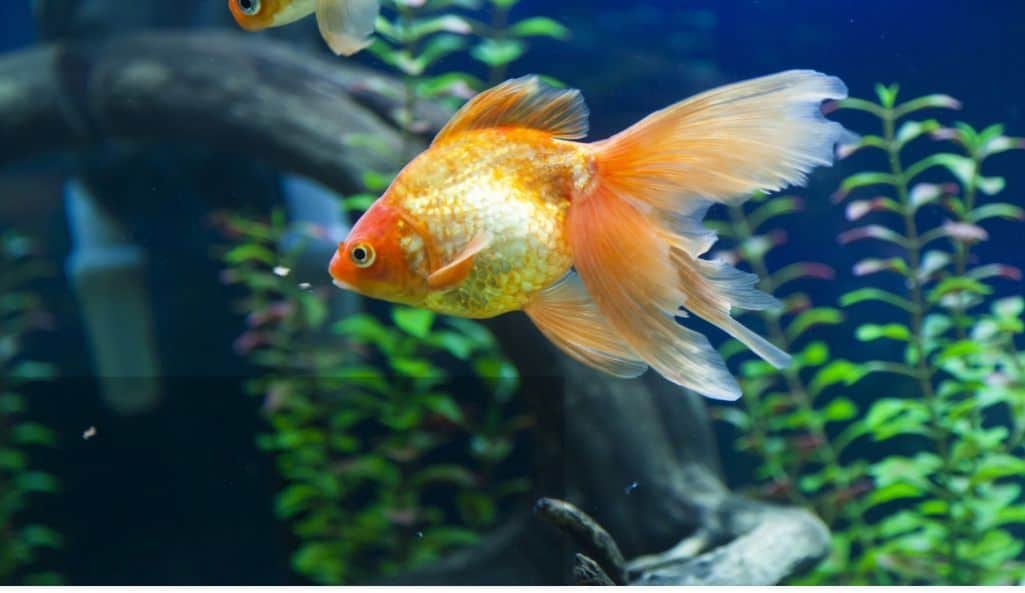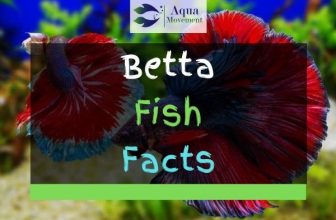How Long Do Goldfish Live? Tips to Increase the Average Goldfish Lifespan
Goldfish are low-maintenance pets that are fairly easy to care for. All a goldfish really wants out of its owner is proper nourishment and a clean bowl or fish tank to swim in. However, it came to our attention that there’s a common misconception with regards to the lifespan of goldfish.
Many people think that goldfish have short lifespans, which couldn’t be further from the truth. When cared for properly, goldfish can live an extremely long life.
In fact, if you try looking up any article about the longest-lasting pet fish species, the goldfish is highly likely to be somewhere on the list, if not the front runner.
Today, we’ll help clear the confusion about the lifespan of goldfish and discuss a bunch of different scenarios that can affect their lifespan, so stick around.
Table of Contents
How Long Can Goldfish Live?
The oldest goldfish according to the Guinness Book of World Records lived to the age of 43. It’s particularly astounding that the fish lived that long considering that the owners of fish stated that they didn’t really do anything out of the ordinary to keep their fish alive.
When asked how they managed to keep the fish alive for such a long time, the owners said that they didn’t overfeed the fish, they kept its bowl clean, and they exposed the fish to the sun every now and then. This further proves the fact that goldfish are low-maintenance species.
This isn’t just a one-off occasion, though. Another goldfish that was claimed to have lived a long life is a fish by the name of Goldie. It was said to have lived to the old age of 45. However, these are just claims and there’s no documentation that solidifies these claims. Still, pretty impressive.
There are plenty of other cases of goldfish living for extraordinarily long lifespans, including Fred and Georgie in the UK, with their last known age being 40 years old in 2015. Another fish by the name of Splash also in the UK, with it’s last known age being 38 years old in 2015.
It’s quite clear now that goldfish aren’t the type of fish that live only for a few months. As you can see, these stunning creatures can live for as long as half the average lifespan of a human being. Unfortunately, such great lifespans don’t happen that often, so it’s better to consider the average lifespan of goldfish instead.
What’s the Average Goldfish Lifespan?
With proper care, goldfish can typically live anywhere between 5 and 10 years. It’s possible for a goldfish to live longer than that, but it’s highly unlikely. Genes also play a major role as far as the lifespan of a goldfish that’s cared for properly. And we won’t deny it, a little bit of luck helps too.
While you might be used to seeing goldfish in small fish bowls, the best habitat you can provide a goldfish is a filtered fish tank. By keeping goldfish in a filtered fish tank, you’ll help them reach their full potential when it comes to their lifespan because the water will be regularly cleaned.
How large should a fish tank be to accommodate goldfish? Well, we’d highly recommend going with a 20-gallon fish tank. It’s capacious enough to keep multiple goldfish happy. In addition, it’s recommended to change the tank’s water at least three times every month to ensure longevity.
How long do Goldfish live in Bowls?

Like we’ve already mentioned, the lifespan of fish kept in bowls is a lot less than those kept in a fish tank. However, it all boils down to the size of the bowl itself and how often you care for it. In addition,having a filter installed in the bowl can help goldfish live significantly longer.
When your fishbowl is equipped with a filtration system, the goldfish can live for about 5 years. But without a filtration system, you shouldn’t have too many expectations because your goldfish will likely live about 2 to 3 years. The bottom line is that bowls aren’t the best homes for goldfish.
It’s quite hard to believe that fish bowls aren’t the most ideal habitat for goldfish considering that that’s where they’re often seen in. However, there are many reasons why fish bowls aren’t great for goldfish, the first one being that they’re too small for the amount of waste goldfish produce.
More waste, more toxins
The more waste gets accumulated, the more harmful toxins start to contaminate the water. Such toxins include ammonia, nitrite, and nitrate. When the amount of toxins in the fishbowl gets a bit out of hand, the water will become toxic and may lead to the poisoning of your fish.
Another reason why fish bowls aren’t the best home for goldfish is that they’re very restricted in terms of space. Many of us tend to make the mistake of not taking into consideration the size of goldfish when they grow older. In most cases, a fishbowl won’t be very accommodating.
There seems to be a common misconception that the size of goldfish is equal to the size of their habitat, which is untrue. However, you need to keep in mind that the growth in size for a goldfish can happen at a slow rate if it’s kept in smaller spaces, and vice versa.
Goldfish will never stop growing
It’s also crucial to understand that as long as they’re well cared for, goldfish will never really stop growing. So even if your fish goes on to live a lengthy life, eventually it’ll become too big for your fishbowl that its movement will become restricted and it will die.
Also, note that when we said that the rate of growth for goldfish is determined by how capacious the place they’re kept in it, we were only talking about the growth of their body. However, the organs in their bodies continue to grow and can become too small for their bodies at a slow growth rate.
When the organs become too big for the fish’s body, they don’t function at their full potential and it could lead to the death of the fish, which is another reason fish bowls aren’t the best home for goldfish. Not to mention that if the bowl isn’t equipped with a filter, doing frequent water changes becomes imperative.
How long do Goldfish live in Ponds?

If you’re keeping goldfish in a pond, you don’t have to worry about them dying prematurely since ponds can accommodate a large volume of water, which is great for acquiring large quantities of oxygen. The bottom line is that ponds are ideal for keeping goldfish happy.
However, there are a number of factors that can shorten the lifespan of your fish in a pond. If the pond isn’t well-sheltered from predators, birds can fly over it and catch some of your goldfish. In addition, the pond needs to be kept in an appropriate temperature range or else the fish will die.
How Long Can Goldfish Survive Without Food?
Of course, we wouldn’t recommend doing this at all, but it’s useful to know that goldfish can last for up to two weeks without food. If there’s no food in the tank, goldfish can feed on scraps and algae. It’s been documented that a goldfish survived 134 days won algae and leftover scraps.
Why is this important to know? Well, if you’re gone on a holiday for a few days, this will give you peace of mind that your fish won’t die. But again, we don’t recommend leaving your fish without food for too long. You can use automated feeders if you’re gone on a holiday for a while.
However, there’s one thing you need to keep in mind when it comes to using automated feeders before heading on a short trip, which is that you’ll run the risk of overfeeding your fish instead of starving it. Alternatively, you can hire a pet-sitter to take care of your fish while you’re gone.
How Long Can Goldfish Survive Out of the Water?
Obviously, goldfish won’t survive for too long when it’s out of the water. However, you may have guessed that it’ll bid its farewells a few seconds from it leaving the water, but you’ll be surprised to know that goldfish can survive for up to an entire hour when it’s out of the water.
Goldfish can survive even more than just an hour if there’s the slightest amount of water on the floor. There are also occasions where goldfish jump out of their tanks while having some water on them. In these cases, goldfish can survive an astounding time period of three hours.
Of course, we don’t recommend taking your fish out of the water on purpose unless you’re trying to clean up your fish tank or doing a water change. Moreover, if you notice your goldfish jumping out of their tanks, you should rush to their rescue as soon as possible so that they don’t die.
Conclusion
All things considered, we can safely say that if you provide proper care and a good diet for your goldfish, they’ll most likely live for about 5 to 10 years. In addition, keeping your goldfish in a fish tank that’s equipped with an adequate filtration system will help them reach their full potential in terms of lifespan, compared to keeping them in a small fishbowl.
To ensure that your goldfish, as well as the rest of your aquatic buddies, live life to the fullest, you must maintain good water quality. We recommend using a water test kit to monitor the quality. In addition, you must make sure that your fish tank is getting enough oxygen and aeration because goldfish require a great deal of oxygen to stay alive and healthy.
Further, the pH level and temperature of your water need to be kept stable in order to promote a lengthy lifespan for your goldfish.
Furthermore, you can’t settle for poor-quality food. Lastly, your goldfish must be kept away from predatory fish. Everything else is based on genes and luck.




